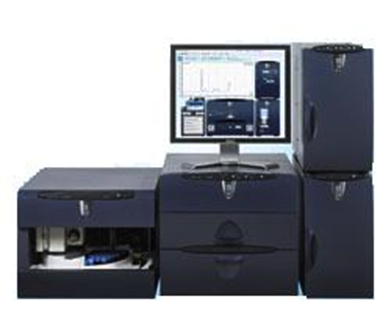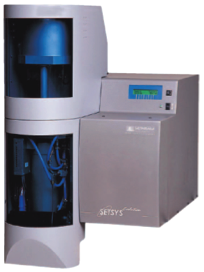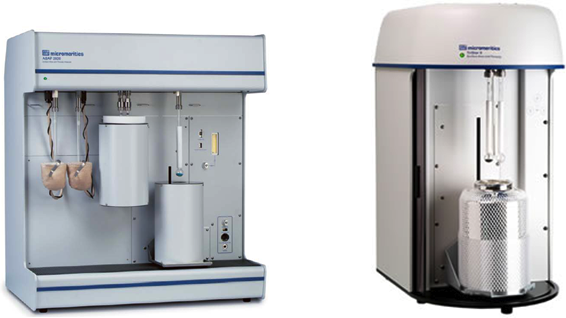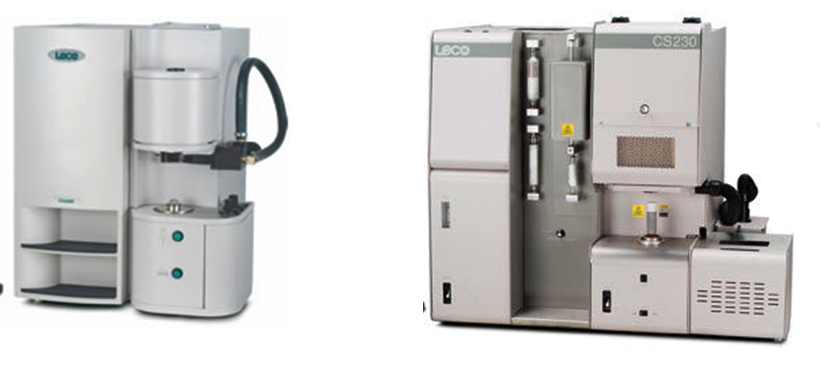

The devices available at the Nanomaterials for Energy and Recycling Laboratory are:
ICSM has a capillary ionic chromatography Dionex ICS5000 for assaying ions in solutions. The samples are passed through a capillary column containing a stationary phase having chemical functions to slow the cations or anions depending on the chosen column. The ions are therefore separated according to their affinity for the stationary phase. The detection takes place in the column outlet with a conductimetric cell. The detection limit of the apparatus is given to 0.5 ppm.

A specific room is devoted to furnaces. This room is equipped with several furnaces including tubular to work under different atmospheres (Ar, Ar/H2 5% N2, Air, O2 etc.) at different temperature ranges (up to 1100°C and 1550°C) and as elemental analyzers (C, S, O, N, H) and thermal differential and thermogravimetric analyzer (TGA / DTA).

ICSM has a thermogravimetric and thermal differential analyzer (Setsys Evolution 16). This device can measure mass changes of a sample with increasing temperature and follow structural transformations such as melting or crystallization. This unit offers different ways of analyzing thanks to a wide temperature range (S and B thermocouples for temperatures below 1600°C and W thermocouples for temperatures up to 2400°C) and to the range of the most commonly used gases (Ar, Ar/H2, N2, Air, O2). This device is also coupled to a mass spectrometer for analyzing the gases online during the heat treatment.
ICSM has two measurement devices for gas adsorption on solids (Micromeritics ASAP 2020 and Tristar 3020). They are used to characterize porous solids and get information such as the pore size, surface area, or total pore volume of the samples. The environment of devices, especially all the available gases (N2, Kr, or steam) allows studying a wide variety of materials with highly variable porosity. The ASAP 2020 model is also equipped with a chemisorption set.


ICSM has two elemental analyzers for solids samples. Their operating principle is similar. It is based on the calcination of the sample at 3000°C, and the detection of the off-gases either by an infrared sensor (CO, CO2, SO2, H2O) or by thermal conductivity (N2). The LECO CS230 model allows measurement of carbon and sulfur concentrations whereas nitrogen and oxygen concentrations of the solid samples could be performed with the LECO TC(H)-600 model.